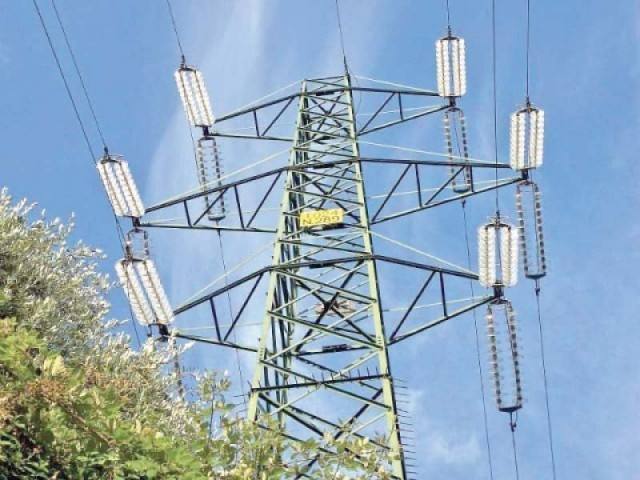NEPRA approves tariff hike of Rs0.57 per unit
Increase will put additional burden of nearly Rs4.2b on consumers

In the petition, the CPPA had sought an increase of Rs0.64 per unit in the power tariff for Dec 2018. PHOTO: FILE
At a public hearing, Nepra noted the use of costly furnace oil for power generation instead of re-gasified liquefied natural gas (LNG) and demanded all details from the Central Power Purchasing Agency (CPPA) about RLNG supply agreement with power plants. The tariff was revised by the power-sector regulator in the wake of a petition filed by the CPPA.
The tariff increase would lead to a cumulative burden of nearly Rs4.2 billion on electricity consumers, which would be placed on them in the next monthly bill.
ECC approves 33% hike in power tariff
At the hearing, chaired by Nepra Vice Chairman Rehmatullah Baloch, the regulatory authority questioned the use of expensive furnace oil instead of cheaper RLNG.
Nepra member from Punjab Saifullah Chattah asked the CPPA about the provision of less RLNG to the power plants in December. “Don’t you have an agreement for RLNG supply,” he asked. “If yes, then why was it not fulfilled?”
Residual fuel oil (RFO)-based electricity generation in December also surged to 930.78 gigawatt-hours (GWh) or 12.06% of the total generation from 5.75GWh (0.08%) in November.
Total cost of RFO-based electricity came in at Rs14.19 billion (Rs15.25 per unit). Hydroelectric power generation during the month plunged almost 48%.
In its petition, the CPPA had sought an increase of Rs0.64 per unit in the power tariff for December. Nepra rejected the request for transferring 3.58% transmission losses to the consumers, saying they were far higher than the losses permitted by Nepra.
Power tariff rises Rs0.41 per unit on higher fuel cost
In its petition, the CPPA revealed that it charged consumers a reference tariff of Rs5.86 per unit in December 2018 while actual fuel cost turned out to be higher, hence, it requested Nepra to increase the tariff by Rs0.64 per unit.
According to the petition, total energy generation in December 2018 stood at 7,718.65GWh at a cost of Rs44.75 billion, which translated into Rs5.8 per unit.
Of the total, the net electricity delivered to the distribution companies stood at 7,442.35GWh at a price of Rs48.36 billion with transmission losses at 3.58%.
Hydel power generation in December contributed 17.3% or 1,334.49 GWh to the energy mix. In November, its share was 34% or 2,563.97GWh.
The share of RLNG dropped from 17.23% in November to 12.06% in December. RLNG-based plants generated 930.78GWh at a cost of Rs10.12 per unit. RFO-based electricity generation increased from 5.75GWh in November to 930.78GWh in December. The electricity generated from that source contributed 12.06% at Rs15.25 per unit.
Power generation in December from local gas-based plants was 1,679.26 GWh, accounting for 20.04% of the total generation and its cost amounted to Rs5 per unit.
Coal-based generation rose from 13.83% in November to 20.25% in December. Total generation from that source was 1,563.13GWh with per unit cost at Rs6.81.
The share of nuclear energy was 896.59GWh in December, an increase of 11.62% from 10.88% in November. The fuel cost of nuclear energy was 95.39 paisa per unit.
Bagasse-based electricity contributed 70.39GWh or 0.91% at a cost of Rs6.2 per unit. Electricity import from Iran was 36.11GWh and the cost was Rs11.57 per unit.
The share of wind energy amounted to 170.66GWh and its share in the energy mix increased from 1.68% in November to 2.21% at zero fuel cost. Besides, 52.93GWh or 0.69% came from solar energy at no cost.
Mixed energy also contributed 23.76GWh or 0.31% of electricity to the national grid at a cost of Rs6.53 per unit.
Published in The Express Tribune, January 24th, 2019.
Like Business on Facebook, follow @TribuneBiz on Twitter to stay informed and join in the conversation.











1724319076-0/Untitled-design-(5)1724319076-0-208x130.webp)






COMMENTS
Comments are moderated and generally will be posted if they are on-topic and not abusive.
For more information, please see our Comments FAQ